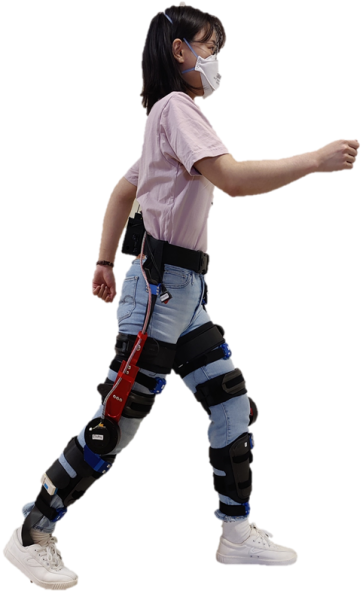 An Associate Professor from the Department of Mechanical and Aerospace Engineering at NC State University has received a Distinguished Switzer Fellowship from the Administration for Community Living’s (ACL) National Institute on Disability, Independent Living, and Rehabilitation Research (NIDILRR).
An Associate Professor from the Department of Mechanical and Aerospace Engineering at NC State University has received a Distinguished Switzer Fellowship from the Administration for Community Living’s (ACL) National Institute on Disability, Independent Living, and Rehabilitation Research (NIDILRR).
Dr. Hao Su was awarded the fellowship; which aims to support research on rehabilitation, independent living and other experiences and outcomes of individuals with disabilities; to fund his project “Biomechanical Benefits of Lightweight Wearable Robots for Community-Based Mobility Assistance of Children with Crouch Gait from Cerebral Palsy.”
The project seeks to provide early corrective intervention in the gait of children with disabilities as a result of cerebral palsy by employing the use of lightweight wearable robotics.
“The goal of this project is to investigate machine learning-based optimization algorithms of assistive torque control of a lightweight knee exoskeleton to maximize gait performance (i.e., walk upright) and evaluate the biomechanical benefits in children with crouch gait walking overground,” the project’s abstract states. “The project focuses on early intervention with sensor-driven and lightweight exoskeletons to counter the declining trajectories of motor development through improved mobility and reduced musculoskeletal pathology by ambulation assistance of children with cerebral palsy.”
 The fellowship is Awarded by the ACL, which is a part of the US Department of Health and Human Services. The organization is headed by the Administrator and Assistant Secretary for Aging, who reports directly to the US Secretary of Health and Human Services.
The fellowship is Awarded by the ACL, which is a part of the US Department of Health and Human Services. The organization is headed by the Administrator and Assistant Secretary for Aging, who reports directly to the US Secretary of Health and Human Services.
Dr. Su and his team are developing pediatric exoskeleton prototypes (shown left), novel algorithms to improve gait by optimization of real-time children mobility performance, clinical evidence to understand efficacy of a lightweight exoskeleton device, and archival journal papers disseminating the methods and results to users, practitioners, and to the scientific and professional communities in the field of assistive technology.
Two types of Switzer Fellowship are available for individual researchers: Distinguished Fellowships, such as Dr. Su’s, require that an individual must have seven or more years of research experience in subject areas, methods, or techniques relevant to disability and rehabilitation research and must have a doctorate, other terminal degree, or comparable academic qualifications. On the other hand, Switzer Merit Fellowships are awarded to individuals in earlier stages of their careers in research. To be eligible for a Merit Fellowship, an individual must have either advanced professional training or experience in independent study in an area that is directly pertinent to disability and rehabilitation.